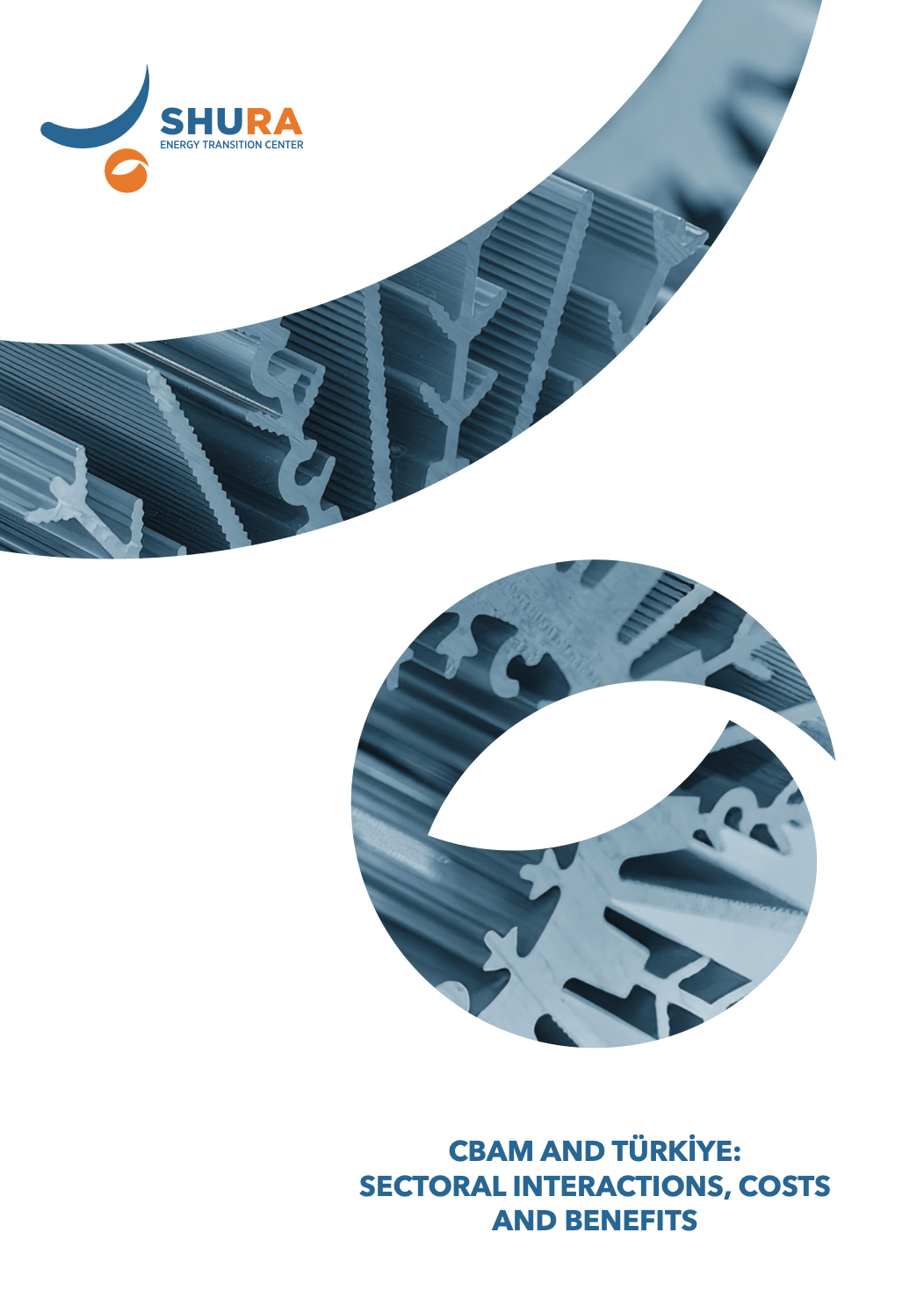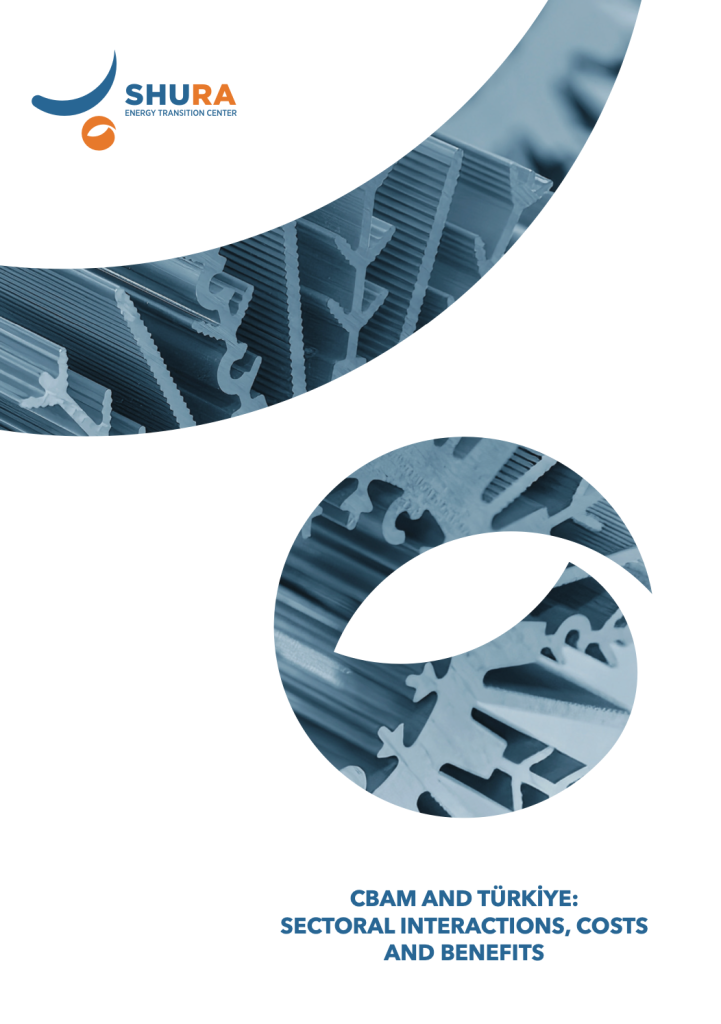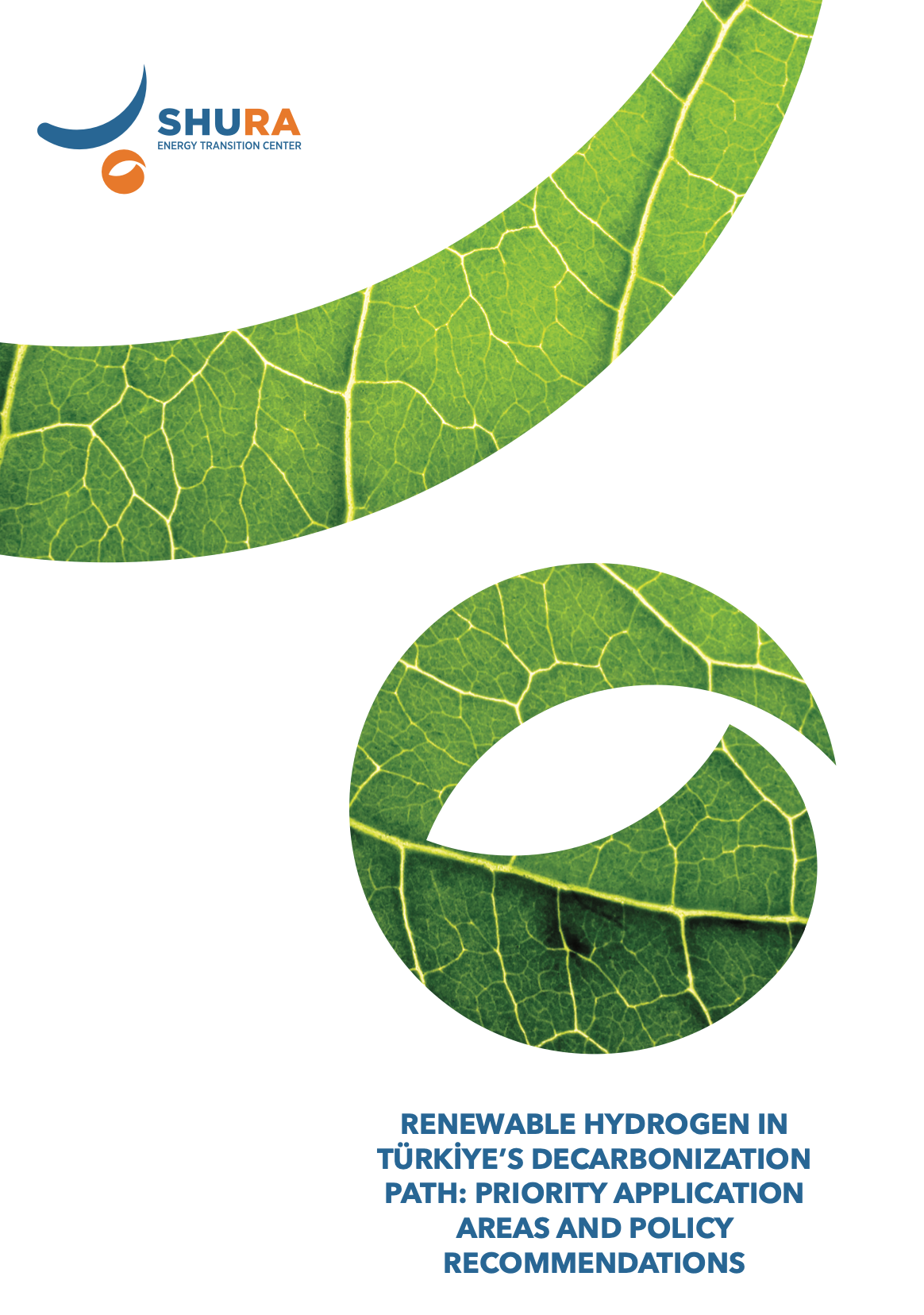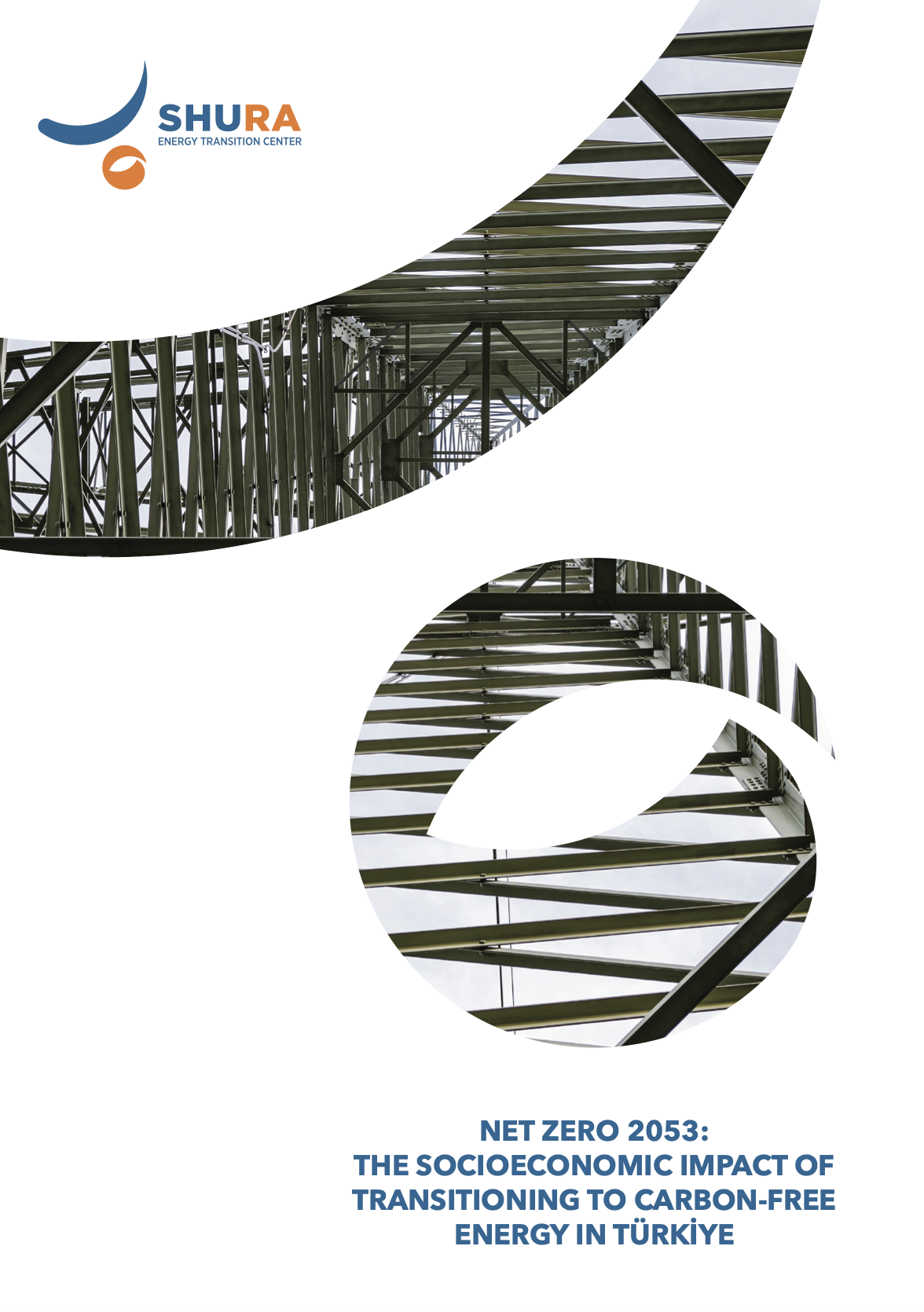The European Union’s (EU) Carbon Border Adjustment Mechanism (CBAM) applies carbon pricing to imported carbon-intensive goods, ensuring that both imports and domestic products face equivalent carbon costs. This mechanism aims to prevent carbon leakage, where carbon-intensive production is relocated abroad to evade carbon taxation, thereby shifting emissions elsewhere.
In Türkiye’s decarbonization efforts, carbon pricing stands as one of the most critical medium-to long-term policy priorities.
Given CBAM’s implications, maintaining and strengthening trade with the EU—Türkiye’s largest trading partner—has gained heightened importance. However, beyond mere adaptation to CBAM to protect EU trade, Türkiye must adopt a comprehensive carbon pricing framework aligned with its 2053 net-zero target. This framework should extend beyond CBAM and other countries’ practices to cover the entire economy.
Prepared by the SHURA Energy Transition Center, this study assesses the quantitative and qualitative impacts of CBAM on Türkiye’s economy. Focusing on the iron and steel, cement, aluminum, and fertilizer sectors (covered in CBAM’s first phase), the study conducts a cost-benefit-based impact analysis. Evaluating benefits and costs under two key scenarios of Business-as-Usual (BAU) and Industrial Transformation\ the report outlines critical steps Türkiye should take in the next decade.





